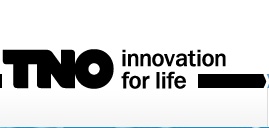Incremental restriction by European authorities of modalities and practices associated with natural health is a familiar pattern. They tell us they want to protect our health. But proposals for restricting maximum levels of vitamins and minerals in food supplements EU-wide, which have been on the cards since the Food Supplement Directive was passed in 2002, could prevent many Europeans from consuming enough to derive the majority of benefits.
It’s an odd situation: on one hand, the European Food Safety Authority (EFSA) has green-lighted over 50 genetically modified crops, yet Europe’s highest authority on food safety has only found around 250 ingredients in the entire food supply to be beneficial to humans!
And that’s why we’re very happy to announce today that we have commissioned Organisation for Applied Scientific Research (TNO) to figure out a much better, and more scientifically rational, way of determining maximum levels.
TNO are big picture thinkers. They’re big on systems biology and they’ve risen to the challenge we’ve set them.
There’ll be plenty more on this in the coming months – and rest assured, this project is expected to become a game-changer for how vitamins and minerals are evaluated by regulators.
Read below our press release issued earlier today.
PRESS RELEASE
For immediate release
13th November 2013
TNO commissioned to develop new vitamin safety approach
The Dutch independent research organisation, TNO, has today been contracted to develop a new approach to determining maximum safe levels of vitamins and minerals for European consumers. The outcome of the research is intended to add to the two existing approaches that have been under consideration by the European Commission since 2007. One was developed nearly 10 years ago by two food supplement industry associations, while the second, proposed by the German government’s food safety watchdog, BfR, has been criticised widely for being unnecessarily restrictive and draconian.
ANH-Intl has been at the forefront of critiquing these existing approaches, and in 2010 published two scientific papers in the peer-reviewed journal Toxicology [1,2] that exposed their weaknesses.
Robert Verkerk PhD, first author of the critiques, executive director of ANH-Intl and lead commissioner of the research project, said: “There is an urgent need for a fresh approach dealing with the EU’s immovable commitment to harmonise maximum levels for vitamins and minerals.” He continued, “While the issue has historically been complicated by great variations in approach taken by different national authorities in individual EU member states, a robust scientific approach has previously been missing. This is the challenge we’re now passing to TNO.”
ANH-Intl has sought funding for the research from a diverse range of European stakeholders, including companies and individual practitioners. The pilot project will span 6 months, with the aim of not only developing a generalised approach, but also providing specific outputs for a limited range of vitamins and minerals, including different molecular forms of each. Subject to general and scientific acceptance of the approach to be proposed by TNO, further research will be necessary to establish maximum values for all the vitamin and mineral forms authorised for use in the EU.
Dr Verkerk believes that the results of the new research will prove vital to the European Commission’s forthcoming proposals on MPLs. “We’re thrilled that the TNO scientists agree that a risk/benefit approach is far preferable to the existing risk-only ones”, commented Dr Verkerk.
Explaining the nature of TNO’s remit further, Dr Verkerk said, “The risk-only approaches tend to push maximum levels extremely low, in an attempt to ensure a near-zero risk of any kind of adverse effect, however mild and transient, in the most sensitive individuals. This is the case even if it means significant benefits are ruled out for the vast majority. By characterising and categorising risks and benefits, and doing this for individual forms of nutrients, risks can be managed far more proportionately. This will likely mean significantly higher maximum levels than those proposed by the existing approaches which ignore benefit and differences between nutrient form.”
Verkerk added, “The science has moved on a long way since the other models and approaches were originally proposed. While everyone appears agreed the approach should be science based, it’s also crucial it takes into account the most recent scientific developments. TNO is a trusted research organisation with a great reputation for independent science — and it’s also well regarded by both the European Commission and the European Food Safety Authority. We’re confident the output from TNO will go a long way toward providing a valid approach that will then be agreed by scientific consensus.”
The main output from the research project will be an article detailing the proposed approach, which is intended to be submitted to a peer-reviewed journal at the end of May 2014.
ENDS.
EDITORS’ NOTES
TNO website
References
[1] Verkerk, R.H.J and Hickey, S (2010). A critique of prevailing approaches to nutrient analysis pertaining to food supplements with specific reference to the European Union. Toxicology 278:17–26.
[2] Verkerk, R.H.J (2010). The paradox of overlapping micronutrient risks and benefits obligates risk/benefit analysis. Toxicology 278:27–38.
Contacts
Robert Verkerk, PhD, executive and scientific director, ANH-Intl; tel +44 (0)1306 646 600, email [email protected]
ANH Team, ANH-Intl; tel +44 (0)1306 646 600 (direct), email [email protected]
About the ANH-Intl
Alliance for Natural Health International is an internationally active non-governmental organisation based in the UK working towards protecting and promoting sustainable approaches to healthcare. The organisation was founded in 2002 by Dr Robert Verkerk, an internationally acclaimed expert in sustainability, who has headed the organisation since this time.
More information about its activities in Europe can be found at anhinternational.org








Comments
your voice counts
13 November 2013 at 11:56 pm
Putting all your eggs in one basket, you'd think by now you would know better. I don't care what their rep. is I want to know where every penny comes from and who it comes from!!
15 November 2013 at 5:34 pm
Hi tr99, and thanks for your comment. Could you please expand on what you mean by "putting all (y)our eggs in one basket"?
Your voice counts
We welcome your comments and are very interested in your point of view, but we ask that you keep them relevant to the article, that they be civil and without commercial links. All comments are moderated prior to being published. We reserve the right to edit or not publish comments that we consider abusive or offensive.
There is extra content here from a third party provider. You will be unable to see this content unless you agree to allow Content Cookies. Cookie Preferences